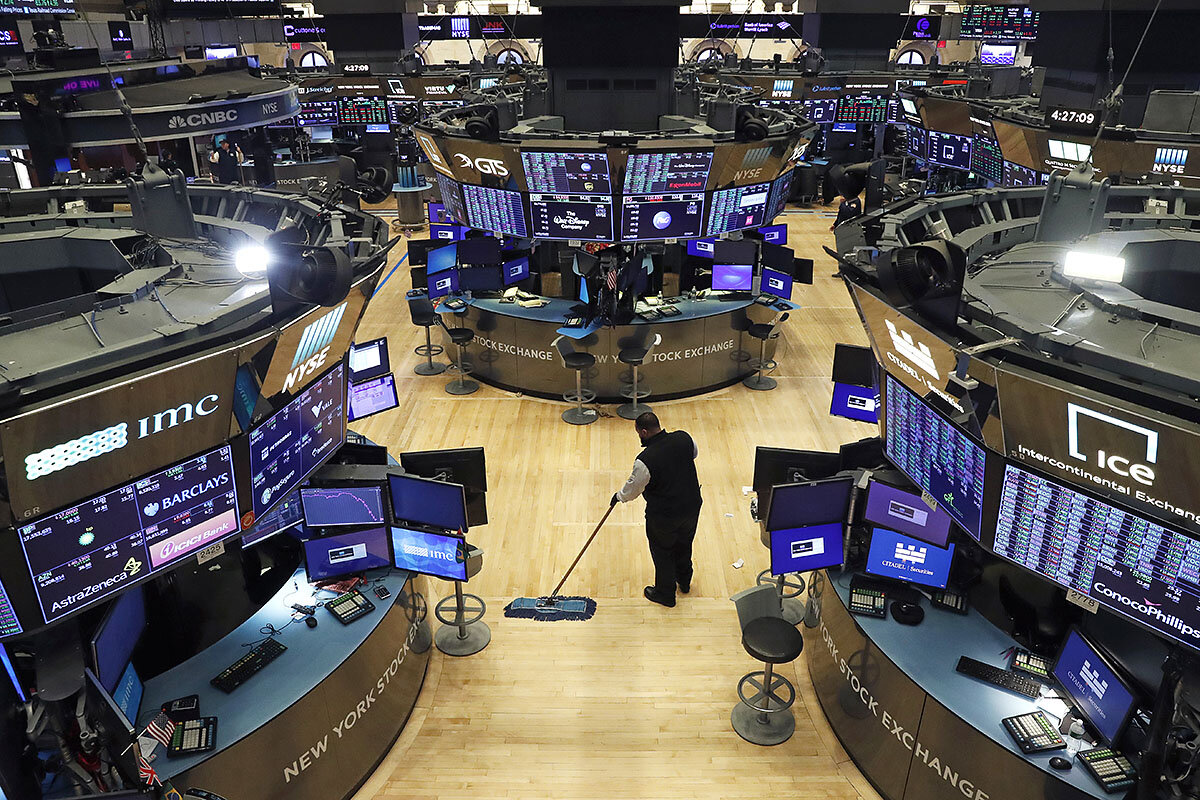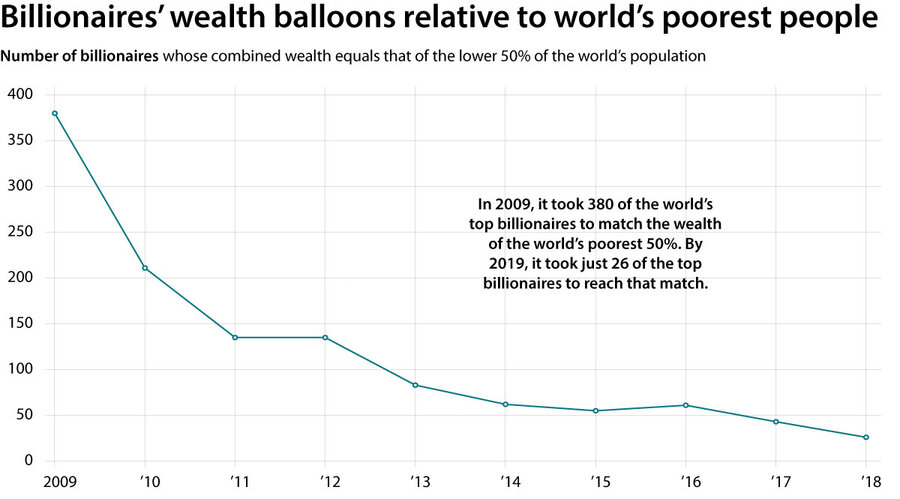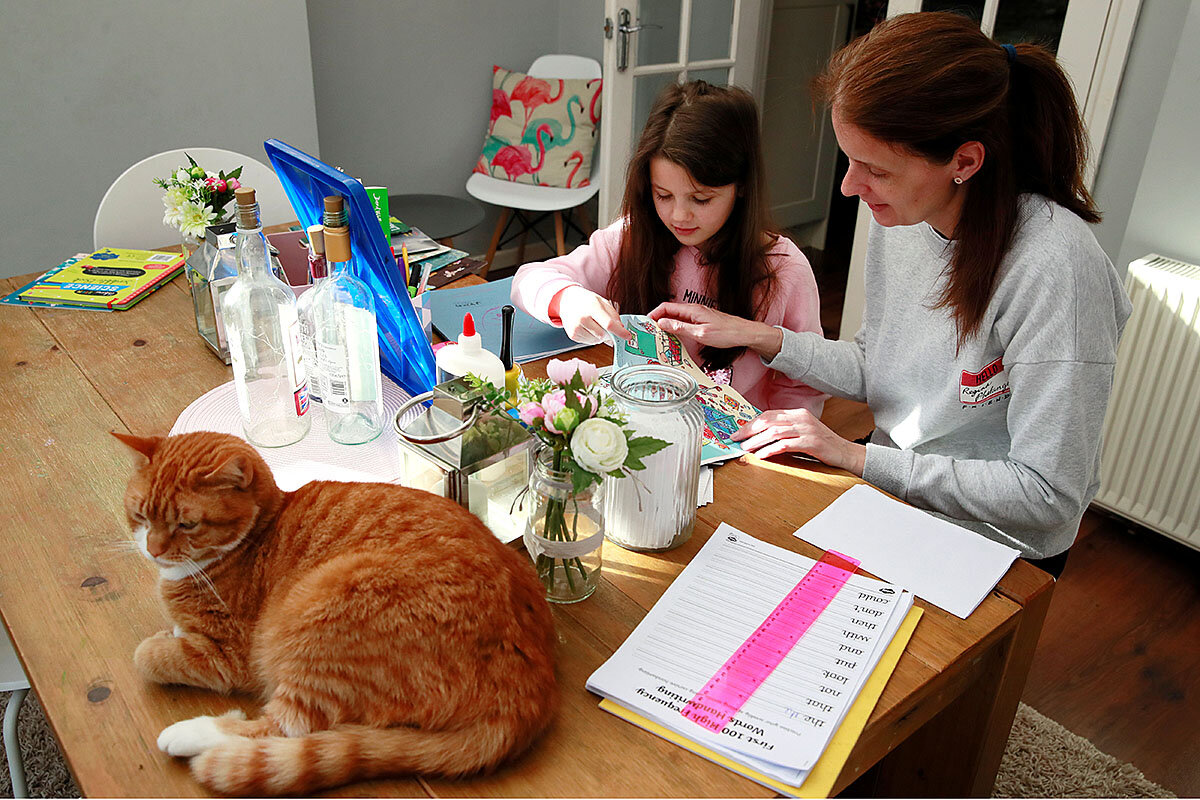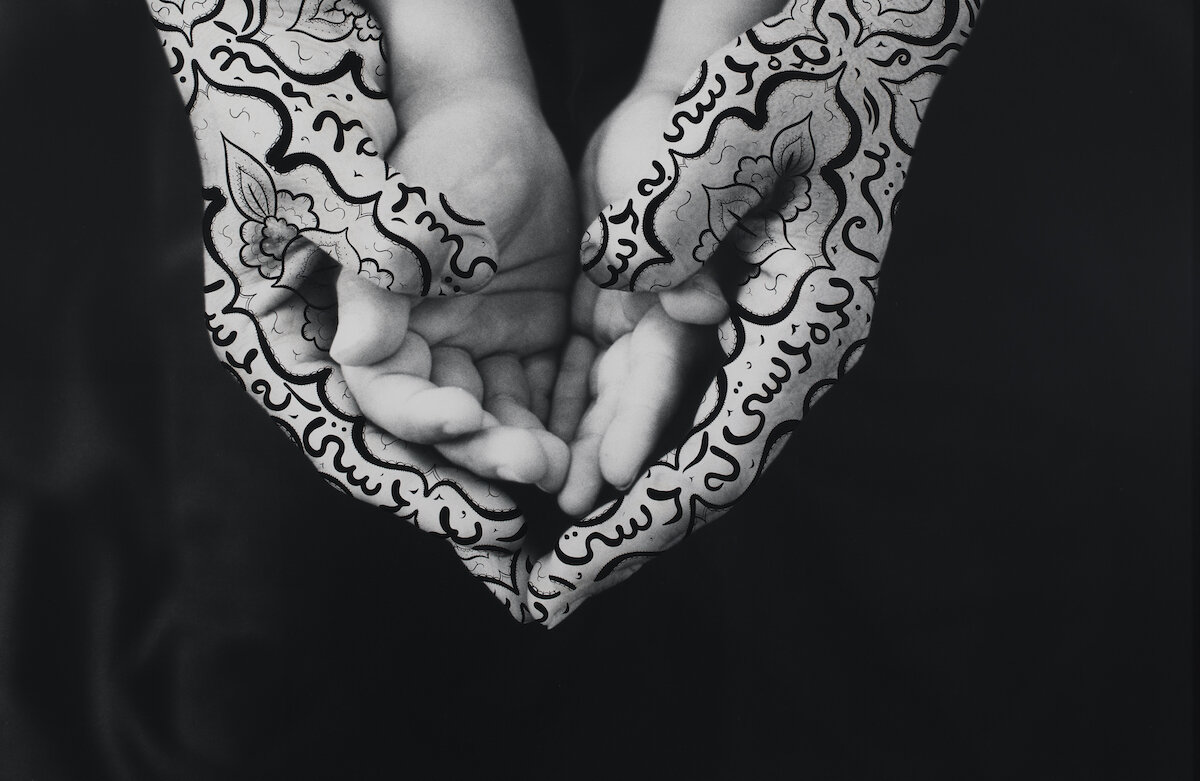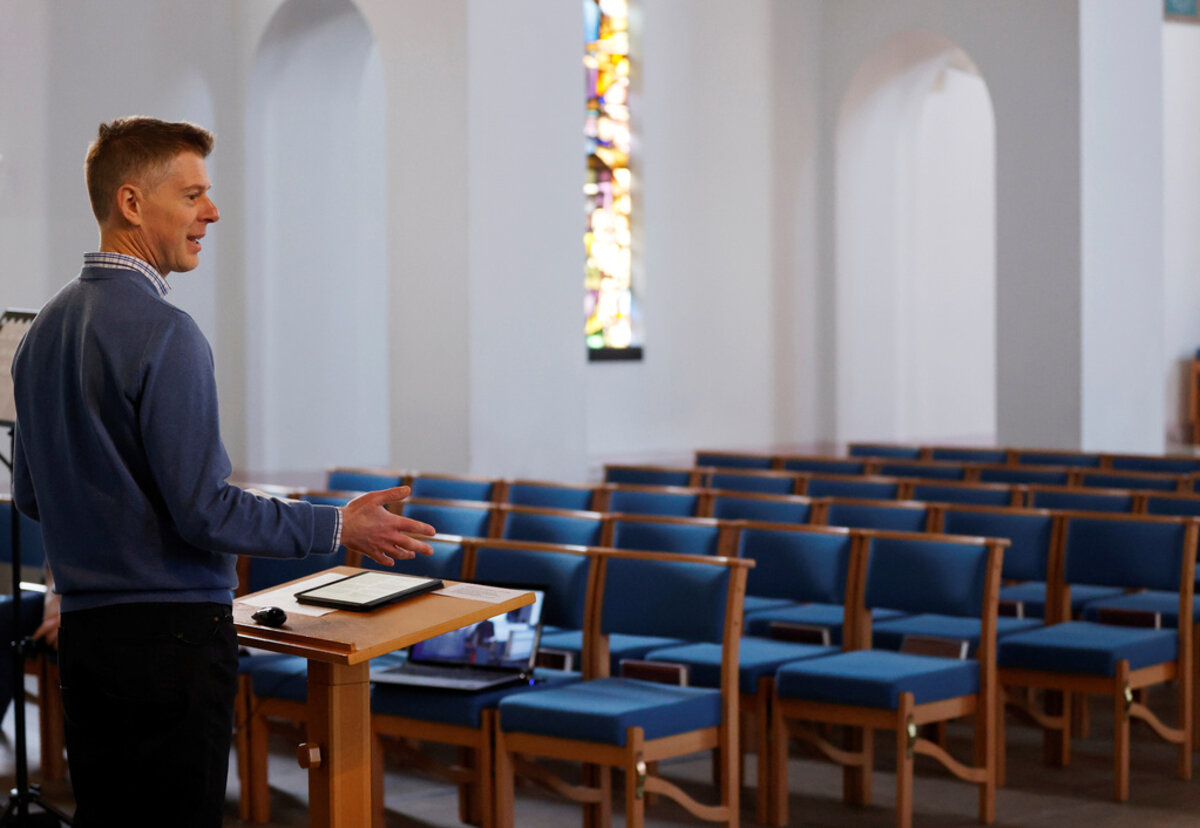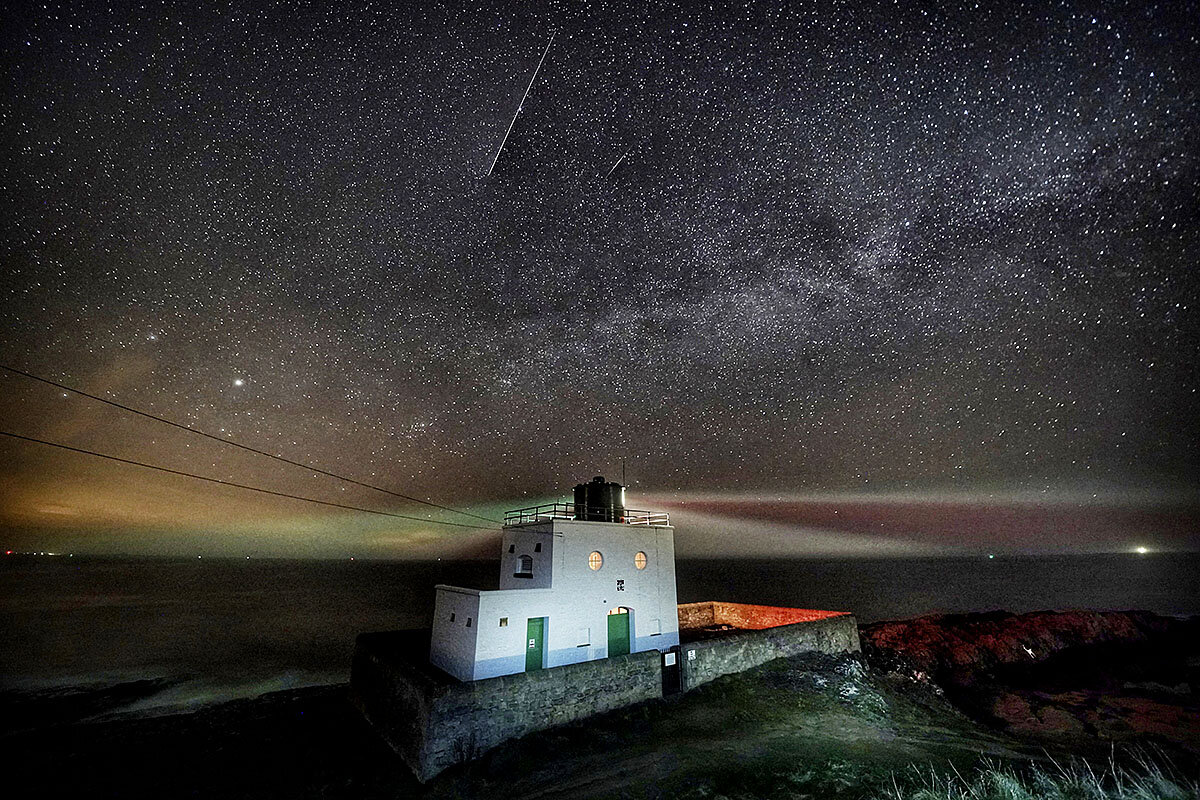What happens when a system built on personal productivity and commercial connections meets a force that favors something very different? Ideally, an authentic shift in thought. Part 4 of a series.
Monitor Daily Podcast
- Follow us:
 Clayton Collins
Clayton Collins
Today’s stories include recalibrating capitalism, optimizing governmental (and parental) responses to pandemic, expanding the climate conversation, and reimagining protest art. First, a looming pivot for the summer games.
In a quiet act of optimism, the Olympic cauldron in Japan. But the 2020 summer games now appear poised to be bumped from a planned July start – perhaps to next year – as the world grapples with the coronavirus.
Truly, there are much greater logistical concerns just now. Still, the games are a recurring celebration of humankind’s oneness. That spirit is needed.
“Oneness” has a power that’s both secular and religious. Researchers have found it to be “related to values indicating a universal concern for the welfare of other people, as well as greater compassion for other people,” wrote psychologist Scott Barry Kaufman in that’s now being recirculated.
Personal triumph, too, is unifying. Stories of individual Olympians can be globally galvanizing. Teams are national, but human achievement inspires – both within and across borders.
Here’s one preview. Hend Zaza is 11 years old. That’s young even for her sport, table tennis. With a shy smile and a ponytail that whips when she plays, with a win at a tournament this month in Jordan.
Consider that Hend’s homeland, Syria, for all but one year of her life. Consider how the ravages of another war, the one against the coronavirus, are also being overlaid on the grinding Syrian experience.
Waiting for the games – waiting however long – may mean deferring those tales of triumph until a collective fight is more in hand. But the pieces are in place. The stories are at the starting line.






